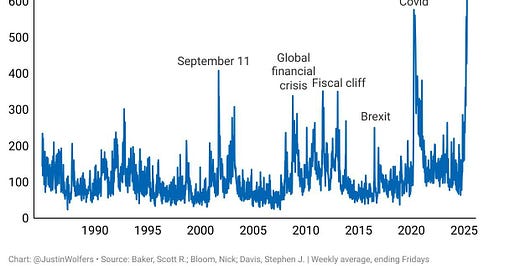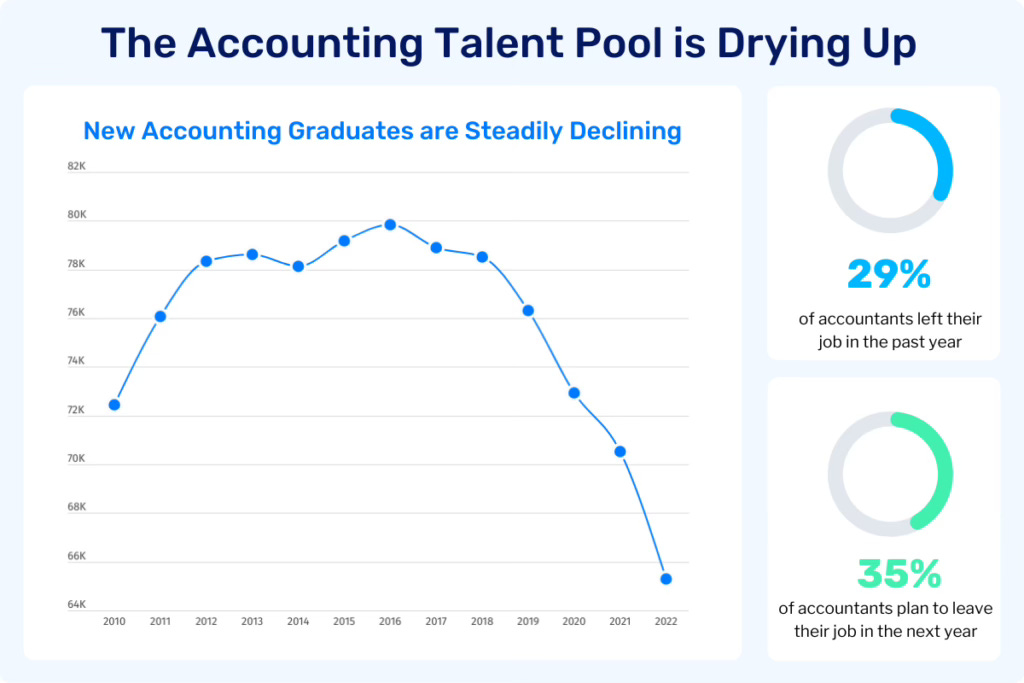Human Capital Intel - 5/20/25
Preparing for continuous complexity | Engagement amid apathy | CFOs get involved in hiring | Rise of 'manager nerds' | Career growth for flat orgs
Welcome to the latest edition of Human Capital Intelligence, your weekly brief synthesizing over 250 leadership, HR, and people sources to filter out the noise. As always, we would love to hear from you at ken@reyvism.com with questions you’d like answered or topics covered.
Sent this by a friend? Sign up here to receive HCI in your inbox every week.
By Ken Stibler; Powered by Reyvism Analytics
Deep Dive:
Practical preparations for longer term uncertainty
Political volatility is now a permanent business condition, not a passing phase. As Bill Gates proverbially said in an interview: "If you're going to build a new factory, you need to understand the politics for the next 20 years, not just the next two days." Smart business leaders are making volatility management a core capability rather than waiting for stability that may never arrive.
The winners are implementing three practical resilience strategies: targeted efficiency measures that protect critical capabilities while eliminating administrative waste, developing flexible supply networks with multiple reliable partners, and maintaining rolling 90-day plans that can quickly adapt to changing conditions. When executed with clear communication, these changes actually improve team engagement rather than damaging morale.
While competitors remain paralyzed by unpredictability, you have the opportunity o make thrive amid constant change your game. The competitive advantage now belongs to those who don't just endure uncertainty but systematically prepare to capitalize on it.
Generating engagement amid the age of apathy
Following up on our big stay article last week, some readers reached out to highlight how the engagement problem both precedes and is much larger and a new buzzy term. These people are of course right, apathy is increasingly haunting the workplace.
The instinct to complain about the times or the generation is high, but leadership in tough times means confronting this head-on. So HCI looked across larger companies that A. had high engagement scores and B. had public details on their people strategies. Across the three dozen odd companies, a two of ideas stood out.
Engagement actions not metrics: "1-2-3" feedback system - identifying one key issue, developing two actionable solutions, and committing to three follow-up touchpoints. This is a rule intended to make sure employee feedback comes with immediate action
Separating growth from career progression: A lack of challenge, stagnation of skills can be solved without promotions. A relatively simple change to career paths can add in growth opportunities without increasing spent.
What’s Next: Simple ChatGPT could take a prompt like “add non-promotion cycle growth and challenge points to ___ role” and spit out engagement tactics with low investment.
Quote of the Week:
“Uncertainty continues to be a major impediment for small business owners in operating their business in April, affecting everything from hiring plans to investment decisions.”
—NFIB chief economist Bill Dunkelberg
Reading List:
CFOs take a larger role in hiring
Amid critical finance and accounting talent shortages, CFOs are increasingly stepping into recruitment processes, with 34% reporting greater hiring involvement while simultaneously drawing talent from other departments and external firms.
This hands-on approach reflects the evolving finance chief role, as executives leverage their unique understanding of departmental needs to place candidates strategically while also turning to AI and automation solutions, with 79% planning to deploy generative AI within two years to bridge persistent skills gaps.
Rethinking career growth when your org chart is flat
Ambitious employees still demand career advancement even in flat organizations, they just need different paths to progress than traditional promotions. In turn, small business are creating lateral development tracks focused on expanded skills, cross-functional projects, and increased influence rather than title changes.
These alternative growth pathways, including internal "gig" opportunities, stretch assignments, and formalized skill development programs, satisfy the fundamental need for professional evolution that Gallup research confirms remains essential for retaining top talent in today's flatter organizational structures
Rise of the manager nerds
Technical expertise is rapidly becoming an essential leadership skill as AI transforms management from directing people to orchestrating "fleets of AI agents," according to Anthropic co-founder Jack Clark. This shift is already enabling startups to generate millions in revenue with dramatically smaller teams, with Meta's Zuckerberg and Y Combinator confirming the trend toward "talent-dense" organizations where managers leverage AI to replace traditional staffing models.
Successful future leaders will be those who combine technical understanding with orchestration skills, "manager nerds" who can effectively delegate to, design for, and review the outputs of multiple AI systems performing work previously requiring dozens of human employees
Data Point: Work friends
79%
Percentage of finance chiefs who said they’ll use generative AI in the coming 24 months “to bridge skills gaps according to a Deloitte report.
In Other News:
I Was the Toxic Boss I Swore I'd Never Be — Here are 4 Confessions from My Leadership Recovery. (Entrepreneur)
Leaders should do more to be likeable: Business tends to look down on it, but being liked can be a powerful currency at work. (Financial Times)
Step it up, stop complaining—and make way for AI. CEOs are no longer lauding employees as the talent. (Wall Street Journal)
Foreign job seeker interest in US jobs has plummeted, Indeed says. (HR Dive)
Working moms say motherhood derailed their careers. (HR Dive)
NO - Should I Have Told My Employee I Figured Out She Was Pregnant?I want to offer her flexibility if she needs it. (Inc)
Generative AI may shoulder up to 40% of workload, some bank execs predict. (CIO Dive)





